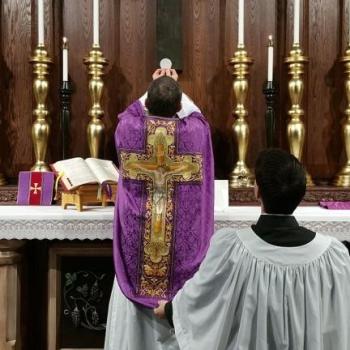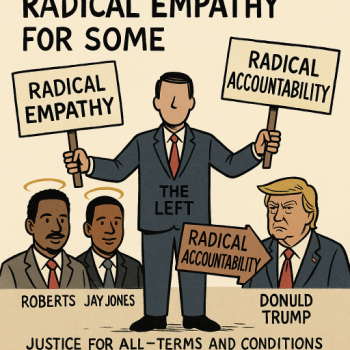
Should Christianity modernize, adapt, and progress to reach young people? Must it fall in line with modern culture by blurring the lines on sexual ethics, marriage, and gender identity? Should it turn its back on the “bullying” ways of old and become “nice” and accommodating? Recent movements in the United Kingdom and the United States suggest otherwise. According to Axios and Reuters, Gen Z (especially Gen Z men) are leading a religious resurgence toward traditional Christianity. The next generation of faithful find “old-time religion” far more appealing than the weakened, modernized, and milquetoast version found in progressive “Christianity.”
The Failure of Progressive Religion
If you marry the spirit of your own generation, you will be a widow in the next.
—W.R. Inge, Diary of a Dean (1949)
Many mainline Protestant churches (and some within the Catholic Church) continue to ignore this warning, with disastrous results. Since the 1960s, mainline Protestantism, once the backbone of American Christianity, has suffered near collapse from theological liberalization and cultural accommodation. Denominations such as the United Methodist Church, the Episcopal Church, and the Presbyterian Church (USA) sought to “modernize” the Christian message. In doing so, they lost moral authority, spiritual vitality, and generational continuity—in short, relevance. When a movement trades transcendence for social activism and moral sentiment devoid of repentance, people leave in droves.
The Appeal of Tradition in the U.K.
Young people crave meaning, truth, reverence, and beauty—especially amid cultural chaos. Traditional Christianity, particularly Catholicism, offers all four. Twenty-six-year-old Dan Williamson said the Catholic Church offered him something “deeper and ancient and more rich.” Joshua Steel, three years younger, echoed this: “I found Christ. I found a great sense of peace that I can’t find anywhere else.” For the first time since the Church of England’s creation 500 years ago, Catholics now outnumber Anglicans—41% identifying as Catholic, up from 22% in 2018, compared with 20% Anglican, down from 30%. This trajectory will likely continue following the election of the first woman as Archbishop of Canterbury, which fractured the Anglican Communion.
Attracting Young Converts in the U.S.A.
In 2024, the Catholic Church experienced a remarkable influx of converts—many of them young adults. The National Catholic Register reports dioceses across the country saw increases of 30%, 40%, and even 70% over the previous year. What draws them? The solidity of Catholic teaching, the beauty of the sacraments, and the clarity of a Church that still believes what it professes. Gen Z, weary of ambiguity and churches that apologize for their own doctrines, are turning to a faith that speaks with conviction. They want substance, not slogans.
The Rise of Conservative Priests Revisited
In 2023, I wrote about the rise of conservative priests in the United States—a shift that represents a major sea change for Catholicism’s future in North America. As Time and The Wall Street Journal reported, younger clergy stand markedly more orthodox than their elders. These priests share the same spiritual instincts as the faithful youth they now serve. In time, they will become bishops and archbishops, replacing many progressives and moderates within the current episcopate.
Final Thoughts: The Future Belongs to the Faithful
The movements rising among young Catholics and converts show that Christianity’s vitality flows from conviction, not compromise. The Church fades when she softens her message to fit the age yet grows stronger when she stands firm in what she has always believed. Progressives once claimed modernization would save Christianity from irrelevance; instead, it hollowed out its soul. Tradition, once dismissed as outdated, now draws the young precisely because it refuses to change with the wind. Across the West, young Catholics and converts prove that faith rooted in truth still transforms hearts. The Church grows when it believes what it teaches and lives what it proclaims.
The future belongs to those who stand apart, not those who fall in line.
Thank you!
Read The Latin Right’s other writing here.
Please visit my Facebook page and IM your questions (and follow my page) or topics for articles you would like covered.












